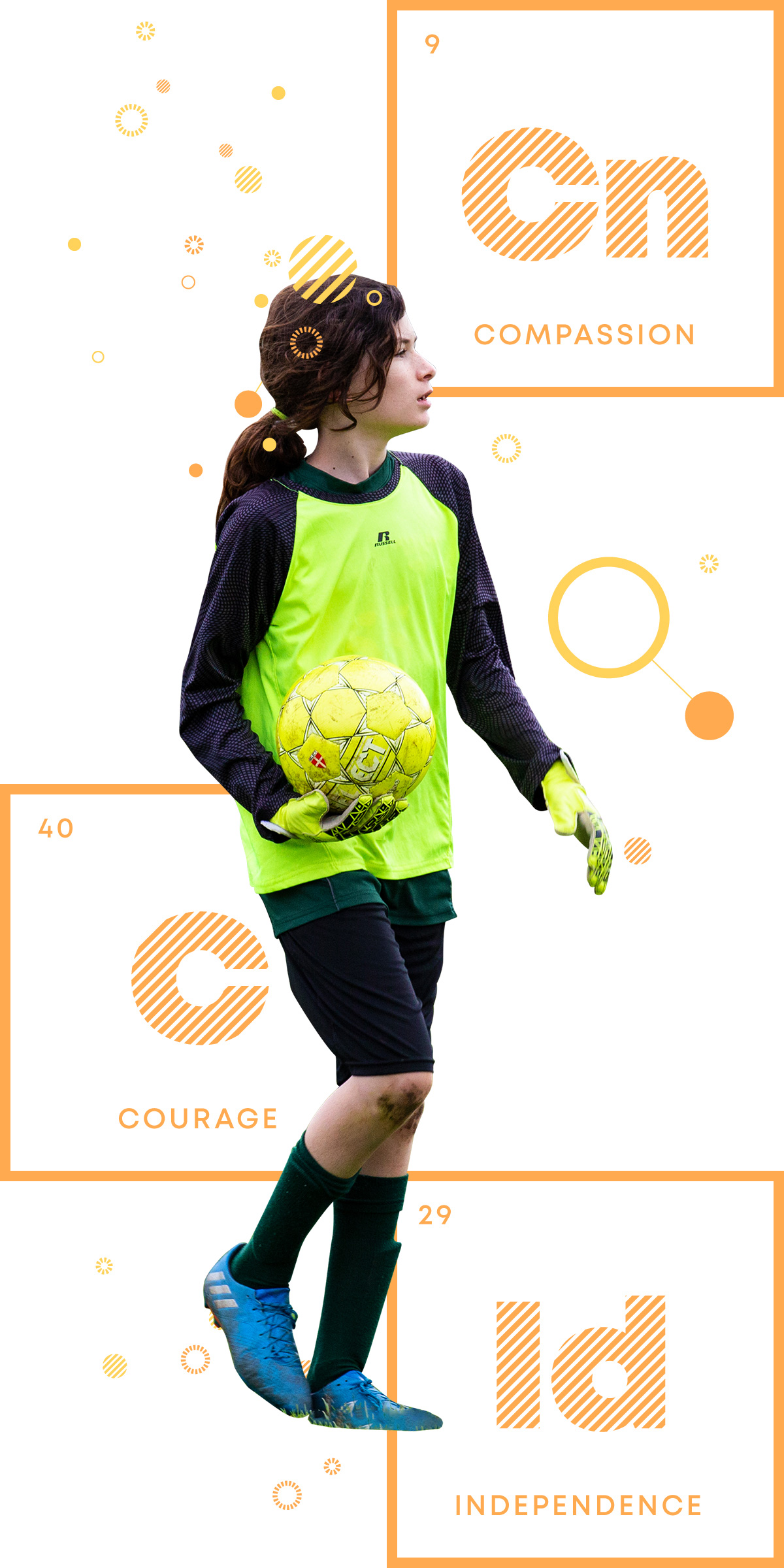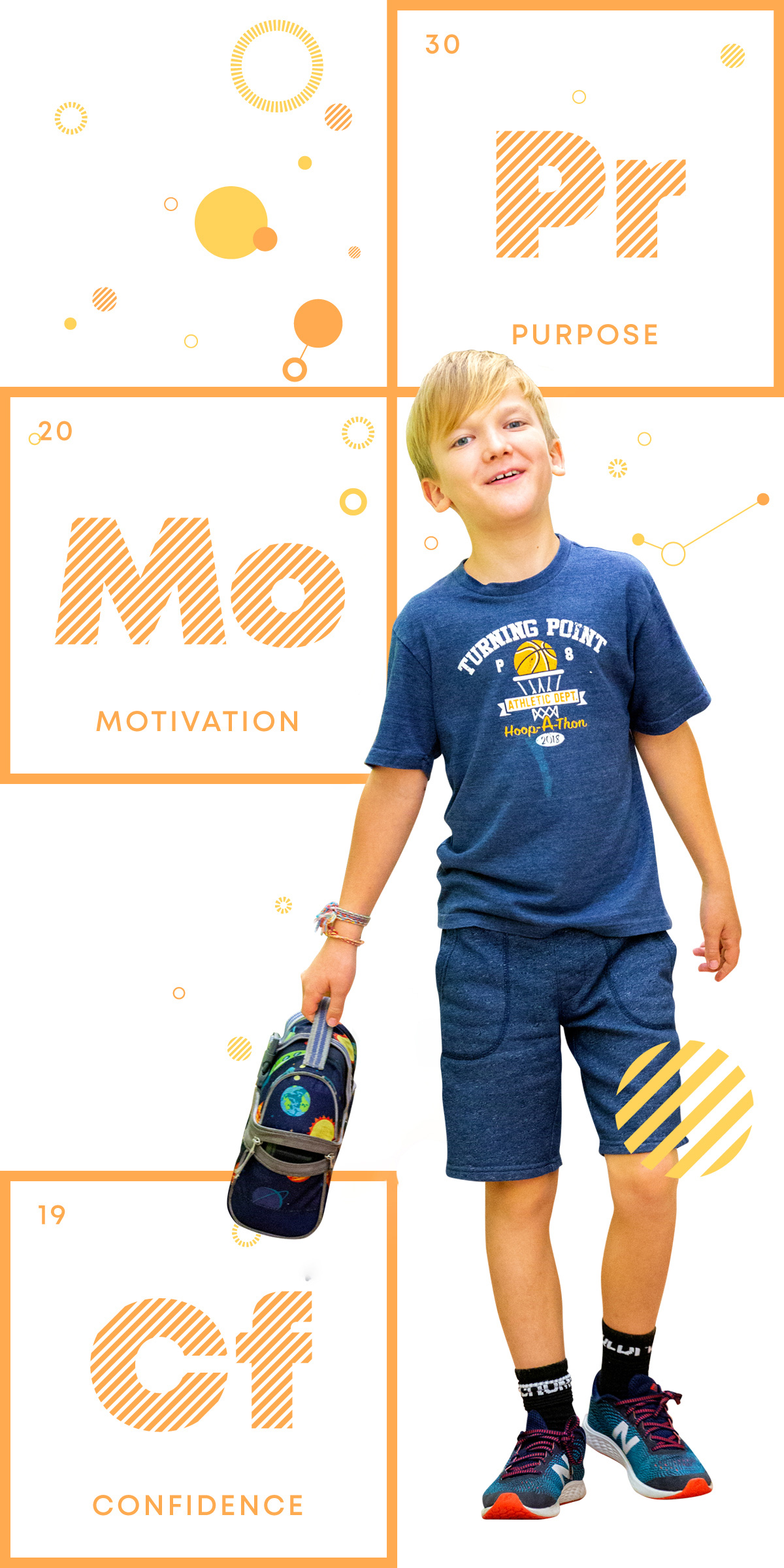
Compassion
Compassion occurs when our feelings and thoughts about others transcend empathy to include the desire to help. When we feel compassion, our heart rate slows, we secrete the “bonding hormone” oxytocin, and regions of the brain linked to empathy, caregiving, and pleasure light up, resulting in our desire to care for other people. At Turning Point, we help students develop compassion by providing genuine opportunities for them to be helpful and generous and by modeling compassion ourselves.
Courage
Courage is foundational to tenets of leadership and positive psychology, and research shows that when we act courageously, our brains release chemicals that reward us for bravery. Courage is not just about facing fear, but also about coping with risk and uncertainty. Courage allows students to take academic risks, to express original ideas, to manage potential disapproval, and to avoid peer pressure.
Independence
Independent learners are motivated to set internal goals to achieve; they actively seek to come to the answers, and are motivated to dive into topics because they truly want to understand more—not simply because they want to pass a test. Learning is not a straight path; independent learners capably navigate the process, less likely to become discouraged when they venture out on their own.
Empathy
At Turning Point, empathy is not just feeling sorry for someone or even working to help them. It’s consciously seeking to understand diverse values and rationales, going beyond “What do they think?” to “Why do they think that?” Research shows while empathy is partly genetic, it can also be learned. A child’s ability to recognize and respond to the needs and feelings of others is based primarily on social factors, such as upbringing and environment.
Gratitude
In positive psychology research, gratitude is strongly and consistently associated with greater happiness and better decision-making. Gratitude is more than being thankful. It does more than just make children feel good; it inspires more purposeful engagement at critical moments in development when their identities are taking shape. At Turning Point, we hold the Montessori principles of gratitude in high regard; we encourage students to recognize each other’s innate value, and we show our own gratitude for our students and each other.


Purpose
When students have purpose, they are driven by something larger than themselves. Often sparked by the observation that something is missing in the world that they might provide, students demonstrate a sense of purpose by connecting their learning to the outside world, engaging in advocacy and civic engagement, and asking important questions about ways to affect positive change.
Motivation
Motivation comes from vision, goal setting, and experiencing successes, but there’s a science behind it, too. Research shows that motivation is hard-wired in our brains; the neurotransmitter dopamine rewards us when we persevere to obtain something we want. At Turning Point, students develop intrinsic motivation—they are driven to learn not just to achieve a grade or earn a reward, but to authentically expand their knowledge because it is internally satisfying.
Confidence
Research shows that the most effective learning environments operate in the “sweet spot” wherein students encounter just the right amount of challenge. Working at the optimal skill level allows students to tackle more challenges because they feel confident and take ownership of their ideas. Even if they don’t accomplish specific goals, students internalize the lessons derived from their attempts and build the confidence needed to try again.
































